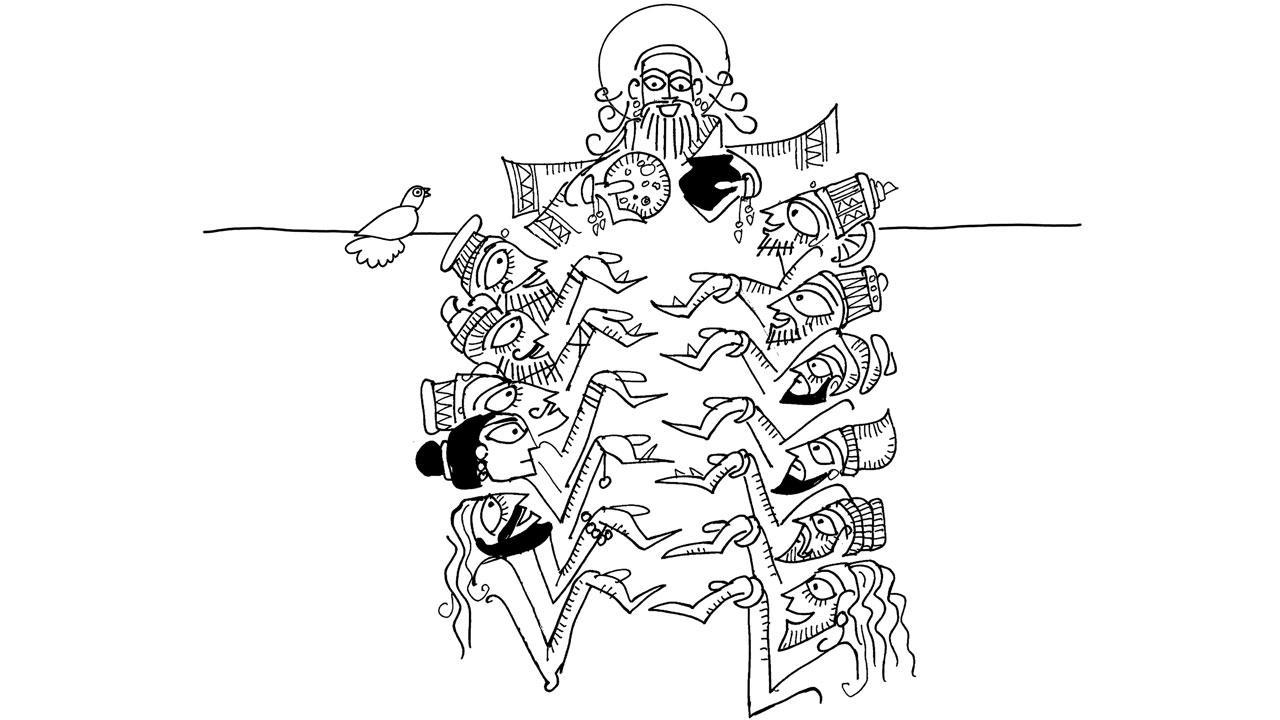The organisers had to apologise for hurting sentiments, without meaning to

Illustration/Devdutt Pattanaik
 At the Paris Olympics, a dance performance provoked outrage. Christians saw it as a parody of Last Supper as depicted by Leonardo da Vinci. The organisers insisted it was based on another painting depicting Bacchanalia, the wild party of the god of wine, Dionysus, which is part of Greek mythology, much like the Olympic games. But the damage was done. The organisers had to apologise for hurting sentiments, without meaning to.
At the Paris Olympics, a dance performance provoked outrage. Christians saw it as a parody of Last Supper as depicted by Leonardo da Vinci. The organisers insisted it was based on another painting depicting Bacchanalia, the wild party of the god of wine, Dionysus, which is part of Greek mythology, much like the Olympic games. But the damage was done. The organisers had to apologise for hurting sentiments, without meaning to.
ADVERTISEMENT
The French are famous for introducing the world to rather disruptive post-modern philosophy in the 20th century that argues that meaning rests not just with the artist but also the audience. So, the French got a taste of their own medicine—how the message was seen differently by different people. Diversity is not about including drag queens alone; it is also about including the hijab wearing fundamentalists and the Born-Again Christian. No one wants to accommodate though. Such is the nature of Western argumentative ideologies.
Of course, non-Christian countries like India and China were clueless about this controversy. A few know about Last Supper. Hardly anyone knows about Bacchanalia. The Greeks loved theatre to explain life, and sports to show how man can break the limitations imposed upon him by the gods. Theatre was about the rational mind, while sports were about the trained body. But at the end of each performance, they had a strange ritual in which people with masks dressed partly as humans and partly as animals, men dressed as women, and women dressed as men, came in a cackling horde—drunken, abusive, irreverent, showing their private parts to the public, and disrespecting boundaries and hierarchies. This reminded everyone that order is temporary and nature is fundamentally chaotic. The Paris Olympics highlighted this ancient idea, fuelling insecurities, and paid the price for it.
Both Jesus and Bacchus have an Indian connection. Many argue that Jesus visited India, probably Kashmir, and learnt Buddhism here and the concept of Sangha (Church). Likewise, in Greek mythology, Dionysus, god of wine, known to Romans as Bacchus, came from India, with wild chemicals, drugs, mushrooms, juices, wines, and alchemy that drove people, especially women, mad. They would kill and eat men, even their own children, who tried to stop them. They encouraged everyone to join them.
European scholars thought Bacchanalia was a description of Shiva and his wild ganas—the unwanted ghosts and goblins who wander aimlessly in the world. This is the “Shivji ki Baraat” (groom party of Shiva) whose disorganisation and impurities terrifies the organised, hierarchical, purified world of Himavan, the king of mountains, father of Parvati.
Many in the 19th century argued that Vishnu was the Greek god of order, Apollo, and Shiva was the Greek god of chaos, Bacchus. These comparisons are, of course, superficial. In India, the concept of chaos doesn’t exist. The tension is not between chaos and order, it is better natural order and cultural order. There is nature (prakriti), diverse and where humans aren’t the most powerful. This is where Shiva lives, the indifferent one. Then there is society, where humans temporarily dominate and become masters of nature. This is where Vishnu lives as Ram and Krishna, paying attention to human dilemmas.
The author writes and lectures on the relevance of mythology in modern times. Reach him at devdutt.pattanaik@mid-day.com
 Subscribe today by clicking the link and stay updated with the latest news!" Click here!
Subscribe today by clicking the link and stay updated with the latest news!" Click here!







